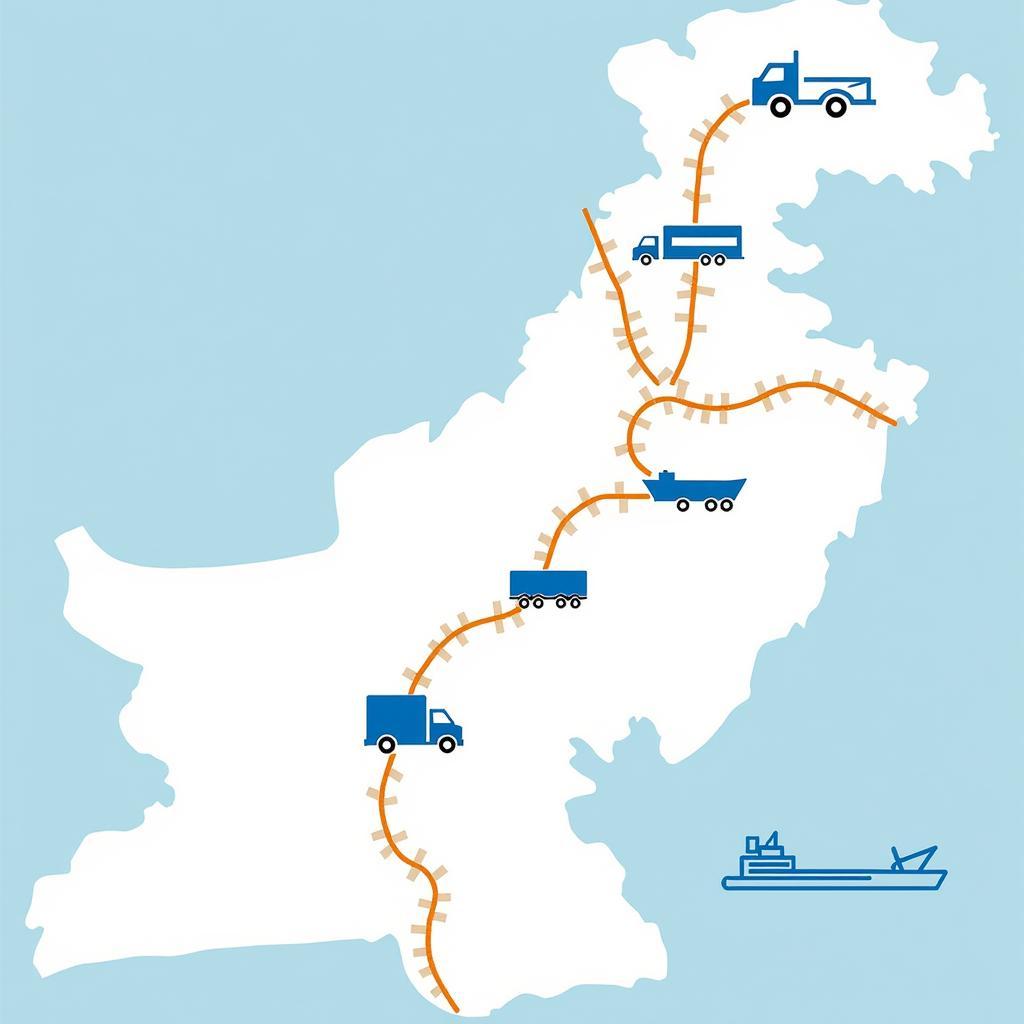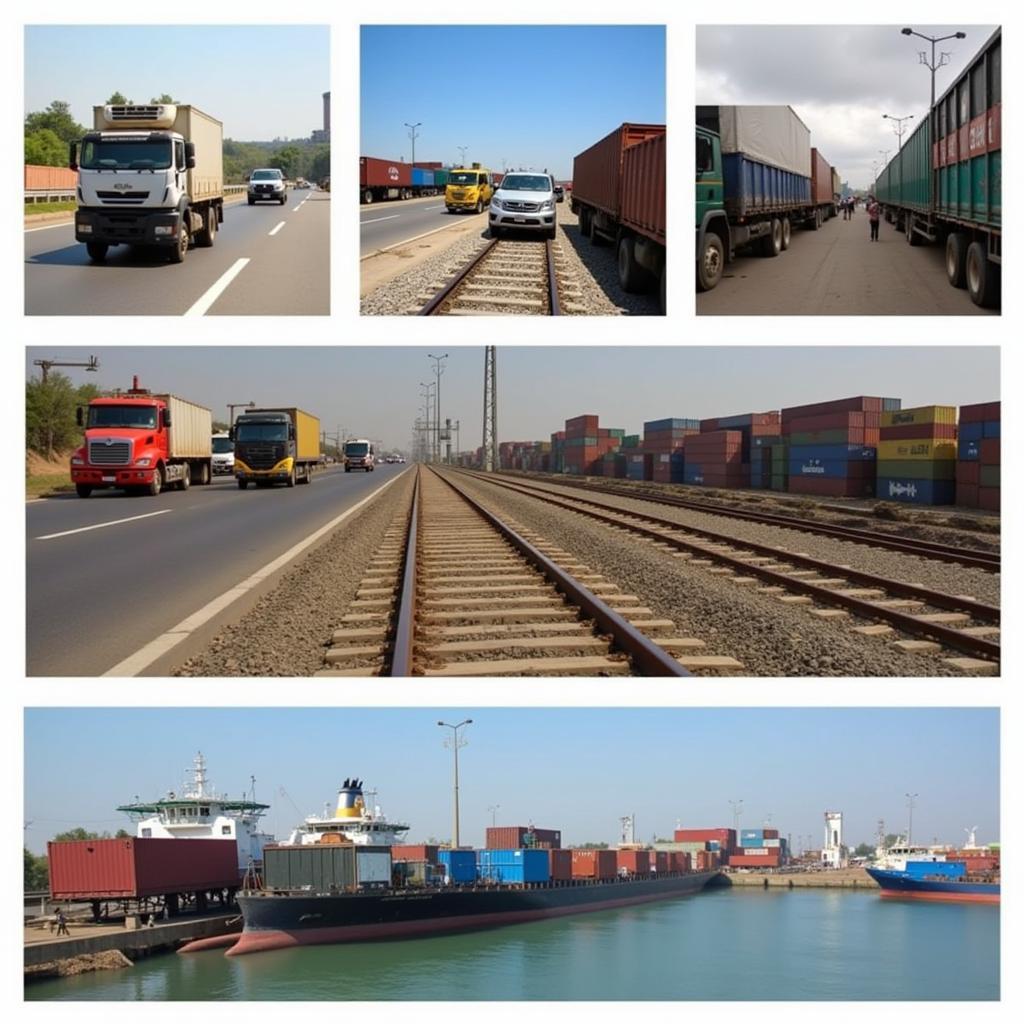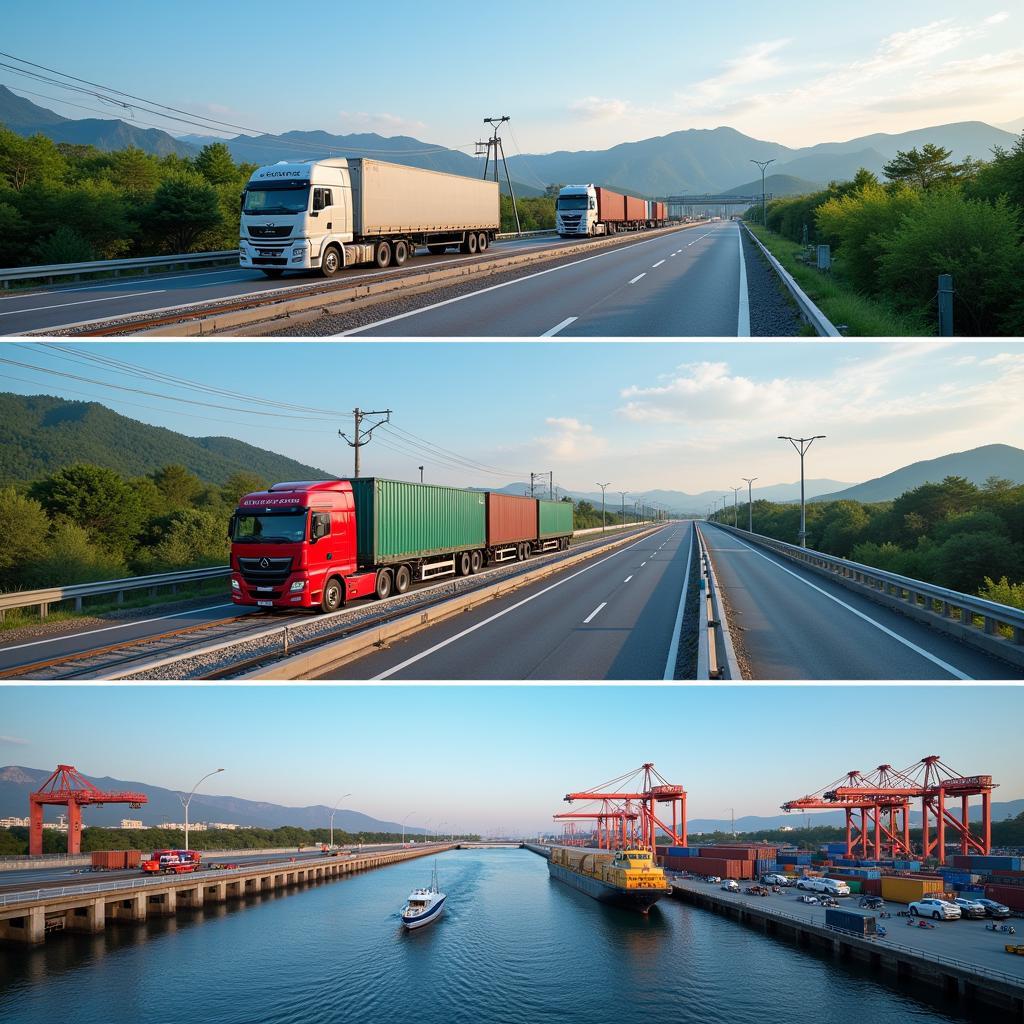The freight system in Pakistan plays a crucial role in the nation’s economic growth and development, connecting businesses, facilitating trade, and supporting various industries. This article delves into the intricacies of Pakistan’s freight system, exploring its challenges, opportunities, and the ongoing efforts to modernize its infrastructure.
 Overview of Pakistan's Freight System
Overview of Pakistan's Freight System
Understanding the Key Components of Pakistan’s Freight System
Pakistan’s freight system relies heavily on road transport, which accounts for a significant portion of cargo movement. However, the railway network, though less utilized, offers a viable alternative for bulk cargo transport, particularly over long distances. Seaports play a vital role in international trade, connecting Pakistan to global markets. Understanding the strengths and weaknesses of each component is crucial for optimizing the freight system. You can find information on specific cargo routes, such as cargo service from australia to pakistan, to better understand the complexities involved.
Road Transport: The Backbone of Freight Movement
Road transport offers flexibility and accessibility, reaching even remote areas. However, the condition of roads and the increasing traffic congestion pose challenges to efficient cargo delivery. Investment in road infrastructure development and improved traffic management systems are essential for enhancing the efficiency of road freight.
Railway Network: Untapped Potential for Bulk Cargo
The railway network offers a cost-effective solution for transporting bulk goods, particularly over long distances. However, the existing infrastructure requires modernization and expansion to fully realize its potential. Initiatives like pakistan railways tenders showcase the government’s commitment to revitalizing the railway sector.
 Challenges in Pakistan's Freight Transport
Challenges in Pakistan's Freight Transport
Modernizing the Freight System in Pakistan: Challenges and Opportunities
Modernizing the freight system in Pakistan is crucial for boosting economic competitiveness. Addressing challenges such as infrastructure limitations, regulatory hurdles, and logistical bottlenecks will unlock significant opportunities for growth.
Infrastructure Development: Paving the Way for Efficient Freight Movement
Investing in infrastructure development, including road upgrades, railway expansion, and port modernization, is critical for enhancing the efficiency of the freight system. This will not only reduce transportation costs but also improve transit times, benefiting businesses and consumers alike.
Regulatory Reforms: Streamlining Processes for Seamless Trade
Streamlining regulatory processes, reducing bureaucratic red tape, and implementing transparent trade policies are essential for facilitating smooth and efficient cargo movement. Simplified customs procedures and standardized documentation will minimize delays and reduce costs for businesses engaged in international trade. For example, information on cargo china to pakistan can be helpful for businesses trading with China.
 Modernizing Pakistan's Freight System
Modernizing Pakistan's Freight System
What are the future prospects of Pakistan’s freight system?
The future of Pakistan’s freight system hinges on continued investment in infrastructure development, regulatory reforms, and technological advancements. Embracing digital solutions and implementing innovative logistics strategies will further enhance efficiency and optimize cargo movement.
How can technology improve Pakistan’s freight system?
Technology plays a vital role in modernizing freight systems globally, and Pakistan can leverage these advancements to optimize its own operations. Implementing tracking systems, utilizing data analytics, and adopting automated processes can significantly improve efficiency, transparency, and security within the freight system.
“Investing in a robust freight system is not just about building roads and railways; it’s about building a foundation for sustainable economic growth.” – Dr. Asif Khan, Logistics and Supply Chain Management Expert.
“Efficient freight movement is the lifeblood of a thriving economy, connecting businesses to markets and driving economic prosperity.” – Ms. Fatima Ali, International Trade Specialist.
Conclusion
The freight system in Pakistan is undergoing a transformation, with ongoing efforts to modernize infrastructure and improve efficiency. Addressing the existing challenges and capitalizing on the available opportunities will pave the way for a more robust and competitive freight system that supports economic growth and development. The freight system in Pakistan continues to evolve, and staying informed about its intricacies is crucial for businesses and individuals involved in trade and logistics. Perhaps you are also interested in aviation pilot courses in pakistan.
For further assistance, please contact us at Phone Number: +923337849799, Email: news.pakit@gmail.com or visit our office at Dera Ghazi Khan Rd, Rakhni, Barkhan, Balochistan, Pakistan. We have a 24/7 customer support team.